R. Yehudah Leon Patilon
the holy painter
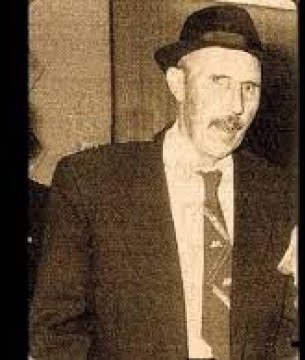
the following is from the book "BeTzel Ilan Hachaim" on Rabbi Chaim Cohen (Chalban) parts 1 and 2 (with permission) unless otherwise stated
R. Yehudah Leon Patilon was born in Thessaloniki, Greece. He was orphaned at age 9 and was raised by his grandfather who was a great kabalist. Since a young age, he guarded himself and eyes in holiness and rose every night for Tikun Chatzot (midnight prayer) with his grandfather.
When he was but 7 years old, his mother saw that the power of the words that come out of his mouth have great meaning and influence. Due to this, she would warn the children who played with him to be careful not to cause him to say something out of place, for everything he says tends to happen.
R. Yehuda Patilon had a simple faith in the Creator and testified on himself that every moment he felt as if he were standing before G-d as in the verse: "I have set G-d before me always" (Psalms 16:8) and that he never separated his thoughts from G-d. Although he himself did not know much in (torah) learning but nevertheless, his perfect faith and clinging to G-d illuminated his path in life and he was gifted with ruach hakodesh (holy spirit and spiritual vision).
Some stories from the book "BeTzel Ilan Hachaim" (with permission):
At age 40, he moved to Israel and settled in Tel Aviv. For his livelihood, he was a painter. Although his paintings were quite beautiful and he was even offered an international prize for one (which he refused), but he did not charge much more than his costs for paint, canvas, and a frame and he lived in great poverty.
When Rabbi Chaim Cohen (the "chalban/cheesemaker", also a hidden tzadik) saw the great poverty he lived in and an open miracle done for him, he asked R.Yehudah "why don't you sell your paintings like the normal price of painters? Not every day miracles are performed" (for providing your livelihood). R.Yehudah answered him: "if so, I will pray to G-d that He will send me my livelihood in greater abundance".
A certain merchant by the name of Avraham would buy the paintings from R. Patilon and sell them in his store for a huge profit. That night when R.Yehudah prayed for more livelihood, angels (spiritual beings) came to R.Avraham and shook his bed where he and his wife were sleeping. Both saw in a dream someone asking them: "why do you not pay R.Yehudah more money for his paintings? Know that R.Yehudah is a perfect tzadik (righteous man) and he lives in great poverty. Pay him more money according to what is fitting to pay him for his precious drawings".
The couple arose from their sleep and spoke to each other on how they both had the same dream while they both felt as if someone was shaking their bed. After they calmed down and returned to sleep, the same thing happened again and this time they were unable to return to sleep and resolved to speak to R.Yehudah in the morning and fix with him a higher price for his paintings.
In the morning, they told over R.Yehudah what happened and he refused to accept more than a modest price he fixed..
Look at my Brush
As a painter, R.Yehudah hid his great spiritual level. All the time he painted, R.Yehudah did not separate his thoughts from the Creator. Even when people came to speak to him and buy his paintings, he did not turn his face away from the painting. Rather, his head was facing and appeared immersed in the painting he was drawing. His custom was to wear Tefilin (phylacteries) from morning until evening.One time R.Chaim Cohen (the "chalban/cheesemaker") asked him: "Chacham Leon how can you paint with Tefilin, it is forbidden to remove one's thoughts from Tefilin when wearing them?"
R.Yehudah replied to him: "Chaim, look closely at my brush!!!" Rabbi Chaim looked closer at the brush and behold he saw that the brush was moving on its own and painting by itself! R.Yehudah was holding the brush in order to pretend to people watching that he was a painter.
Then R.Yehudah told him: "my mind is always above in the upper worlds and I have no occupation with matters of this world, but only in 'I have placed G-d before me always'. Thus, I do not remove my thoughts from the Tefilin at all".
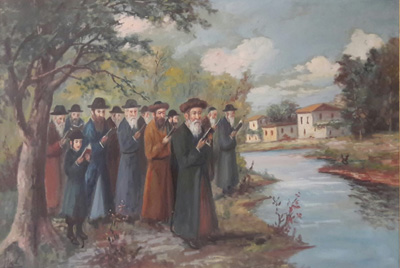 |
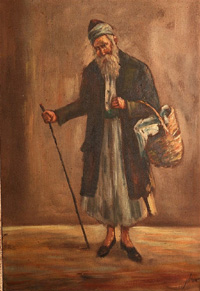 |
actual paintings of R.Yehudah Patilon
When he was very old and his eyes could not see well, his wife asked him: "Leon, you cannot see well as before, if so, maybe you should stop being a painter?". R.Chaim Cohen was there at the time and R.Yehudah told him: "Chaim, look at the brush". Again R.Chaim looked how the brush moved by itself and painted the painting. R.Chaim testified that R.Yehudah did not do this through "Hashbaot" (kabalistic swearing in of the brush) or the like, rather, from Heaven, the brush miraculously would do all the work due to the holiness which he clinged to all his life.
R.Chaim also testified that the Sabbath candles lit on friday night in his own home would (miraculously) stay lit until the middle of the week. But in the home of R.Patilon, they stayed lit until the next friday near sundown (from Sabbath to Sabbath).
You paid such and such
One day, R.Yehudah asked R.Chaim Cohen to buy for him some paint for his work. When R.Chaim came to the store to buy paint, the seller asked for double the price saying the costs went up. R.Chaim hesitated a bit and thought "how can I ask R.Yehudah for more money, he barely makes a living?"R.Chaim decided to pay the difference from his own pocket for the paint and not ask R.Yehudah for the money. But when he reached the home of R.Yehudah, the latter went outside and told him immediately: "you think you can conceal things from me.. you paid such and such money for the paint. Here is the money I owe you".
The blessings of R.Yehudah bore incredible fruits and he was literally like: "whatever comes out of his mouth shall be done" (Bamidbar 30:3) and "a tzadik decrees and G-d fulfills" (Moed Katan 16b). Even the most famous Gedolim (great torah scholars) such as the Chazon Ish would send people in need of salvation to R.Yehudah for a blessing.
R.Yehudah was the pillar of prayer in that generation. Despite his simple appearance, clean shaven, and occupied in manual work (painter), but the Ruach Hakodesh (holy spirit) by him was astounding. Nothing was hidden from him. He ate very little and many times fasted for the entire week, eating only on the Sabbath. He was completed divested of matters of this world and clung with his whole being to the Creator of all worlds.
His wife Victoria testified on him proudly: "my husband is divested of all physical matters. He eats almost nothing. Even if I make food for him, he takes only a piece of bread and a glass of water. He dips the bread in water and swallows it and afterwards drinks the water. This was his food every day. Even on the Sabbath he only ate a little more. My husband is not interested in anything other than clinging to G-d. This is all of his life."
The Ushpizin (forefathers Abraham, Isaac, Jacob, etc.)
His son, R.Yaakov Patilon testified that he was used to seeing on Sukkot that his father was speaking with someone. This went on every day until he asked him: "father, who are you speaking to, There is nobody here besides you?"R.Yehudah answered him simply: "don't you see here the holy Ushpizin (Abraham, Isaac, Jacob, Moses, etc.) sitting in the Sukkah? Why are you wondering with who I am speaking?"
Thus, R.Yehudah lived in a completely different reality than we are used to. Due to his great holiness and humility, he was unable to understand how people do not see what he sees. A similar incident occurred when a guest arrived in his Sukkah and saw a chair which he came to sit on. R.Yehudah quickly rose towards him and prevented him from sitting there saying: "don't you see the Ushpizin sitting there?"
Gilgulim (reincarnations)
R.Yehudah was a great master on seeing the root of souls. Whoever was before him, he could see all the details of the Gilgulim (reincarnations) of the person in full details. He was involved in rectifying souls of the dead. His son told over many examples such as one time they were riding on a bus and R.Yehudah told the driver: "in 5 minutes exactly, you will see a snake crossing the road, be sure to drive over it". Sure enough, five minutes later a snake crossed the road and the driver ran over it and killed it. R.Yehudah said in the snake was a reincarnation of someone who had just completed his tikun (rectification).R.Chaim Cohen testified that he saw many times how he spoke to different types of animals. He spoke to them on the sins they committed which caused them to be reincarnated in animals. He also performed rectifications for some of these to spare them from the sufferings of the reincarnation. Once he asked his son: "come with me to the zoo. I need to speak to the animals and don't want people to notice this. When you are with me, people will think I am speaking to you." Thus, he did and performed hidden rectifications for the poor souls reincarnated in various animals.
R.Yehudah once testified on himself: "know that my soul is a spark from the soul of Rabeinu HaKadosh, R.Yehudah Hanassi (compiler of the mishna) and from Heaven it was arranged that I do not know how to learn much. For otherwise, I would have been able to bring before you the Moshiach in one instant".
Nevertheless, due to his holiness and Ruach Hakodesh, Rabbi Ezrah Perachyah brought him to a special group of hidden tzadikim who studied kabala in secret. When R.Yehudah entered the class he understood everything that was said there and it appeared to him as if he was being reminded of things he already learned in the past. He quickly became very proficient and was taught in dreams by R.Shimon bar Yochai.
Conversation at a Brit Milah (circumcision)
One time Rabbi Yehuda Zerachya Segal was at a Brit Milah (circumcision) together with R.Yehuda Patilon and next to him the hidden tzadik R.Yosef Waltach. He listened in on their conversation and this is what he heard:
R. Waltach turned to R.Yehudah and asked him: "Rav Yehudah, why did Eliyahu HaNavi (Elijah the prophet) not appear at the time they announced "Baruch Habah" (welcome), rather he appeared only when the Mohel (circumciser) recited the blessing on the circumcision?" R.Yehudah answered him: "it is because there are some people here who are not proper, not dressed b'tzinut (modestly) therefore he came only at the time of the blessing in order to not linger with improper people.".
R.Waltach asked him further: "why did Eliyahu stand next to the Mohel and not in front of the baby?" R.Yehudah answered: "since the Mohel is G-d fearing and in the merit of the great mitzvah he did, a great light came upon him. Therefore, Eliyahu stood next to him". R.Waltach asked further: "since there were improper people, why did Eliyahu stay until the end of the mitzvah of Milah, including the naming of the baby and he did not hurry to leave?" R.Yehudah answered him: "since at the time of the Brit Milah, the congregation present was forgiven for their sins, therefore Eliyahu was able to stay until the end of the Brit Milah".
What is Kabala?
His son once asked him: "what is kabala?" R.Yehudah replied: "kabala means to fight kabala (receiving), that is to say, a person needs to learn from G-d's attributes to bestow (mashpia) on others and not be all the time a "receiver" (Mekabel), like most or almost all people seek always to receive and are not prepared to give of themselves to others. One must fight "Kabala" (receiving) and become one who bestows (a giver)."The following are some excerpts from the book "Toldot Menachem" by R.Yosef Shabtai, grandson of the hidden Tzadik Menachem Menashe, who knew him personally:
Once a Jew came to him for a blessing. He replied: "you did not yet pray or don tefilin. Come back after prayer and you will receive a blessing". The Jew was shocked and asked him how he knew. He replied: "it is inscribed on your forehead".
He knew on every person from where was the root of his soul. He once told me that everything he merited was because his grandfather accustomed him to arise for tikun chatzot (midnight prayer) since the age of eight, and to learn, and fasts".
R.Yehudah told my uncle that many great tzadikim do not merit to "ruach hakodesh" (spiritual vision) for when they teach the public, a little bit of pride enters them after the teaching and this pushes off the "ruach hakodesh". But for simple people, they don't have any arrogance and thus they merit".
A person asked him advice about a certain nice religious girl for a prospective shidduch (marriage). He advised against it. When the person insisted on knowing why, he told him that at the age of forty, she will become very sick for the rest of her life. When the person insisted on marrying her, he told him: "pray that after forty, her illness will not be so severe". And thus it happened.
His relative asked him about someone who wanted to marry her. He strongly advised her against him despite that both very much wanted to marry. When his wife pressed for the reason, he told her that the young man will not live long. In truth, he died at a young age during the Yom Kippur War.
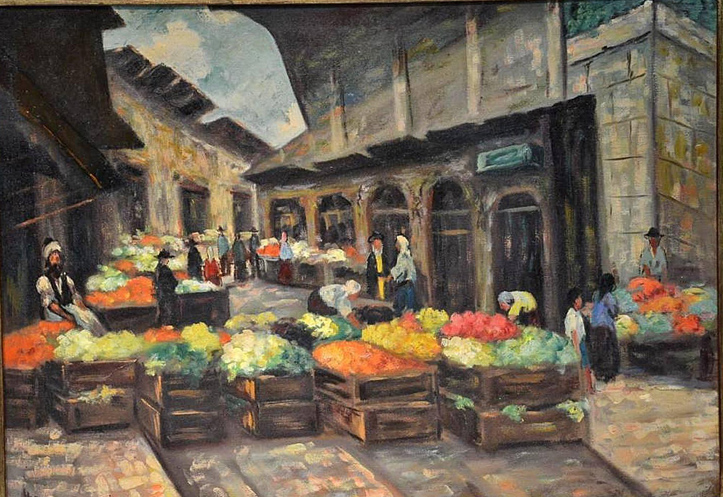
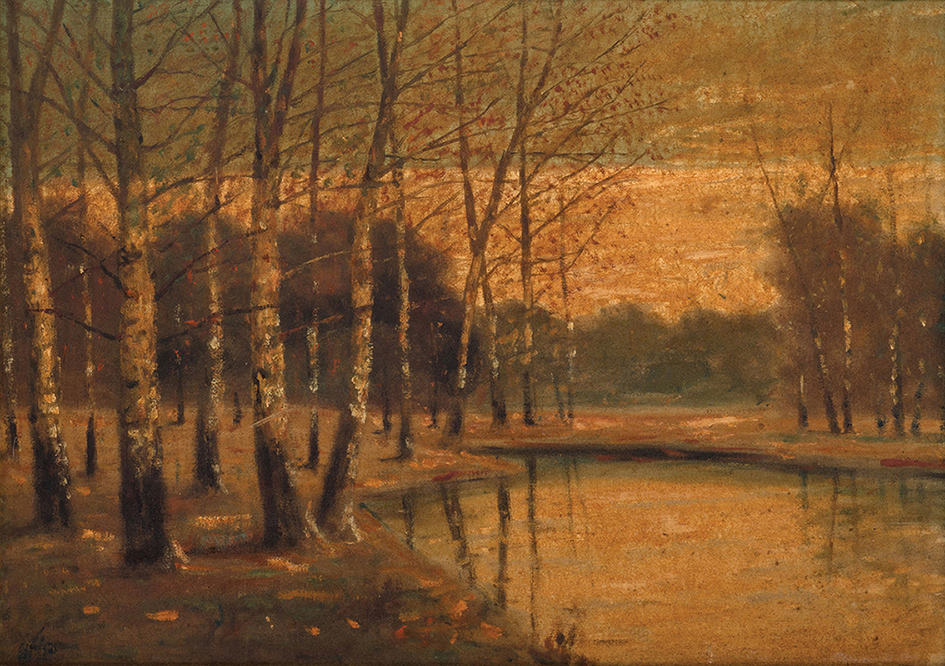
>> Next Special Hospitality
Rating: 10 / 10
Total Votes: 1
 Buy Paperback of this on Amazon
Buy Paperback of this on Amazon